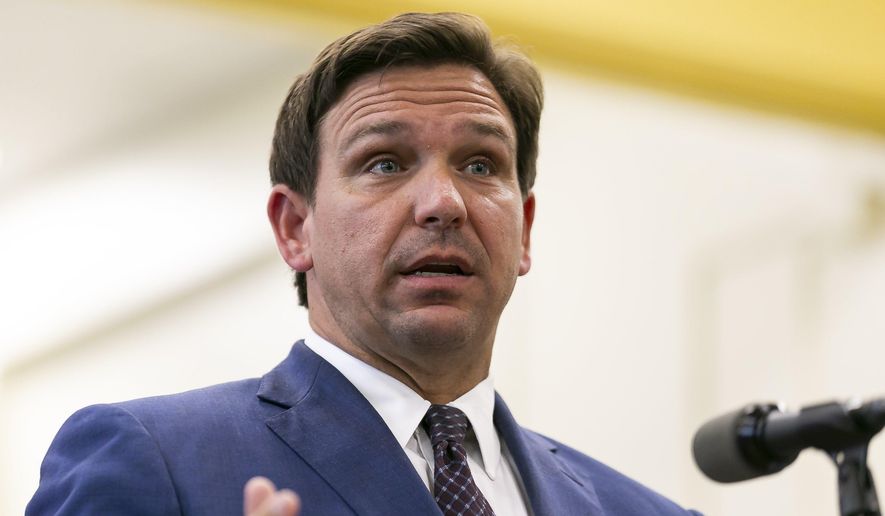MIAMI — The board for Florida’s largest school district rescinded a decision made last week that rejected new sex education textbooks for middle and high school students.
The debate over the sex education materials in Miami took place as school districts and boards navigate a new landscape in Florida classrooms over what officials deem appropriate content.
Miami-Dade County has the nation’s fourth-largest public school system, with 334,000 students.
Republican Gov. Ron DeSantis has signed new laws this year that prevent teachers from talking about gender identity and sexual orientation to third graders and younger and limiting how race can be discussed.
Miami-Dade School Board approved the textbooks after Chair Perla Tabares Hantman changed her mind this week, citing the district needs to follow state standards and curriculum requirements.
“It is my duty, my obligation to ensure the proper operation of our school district,” Hantman said. “In spite of my personal beliefs, and I have very strong personal beliefs and principles, I must make sure our district is in compliance.”
The chair added the books are online and content that is not age appropriate is not accessible. She clarified parents are also allowed to opt their children out from lessons on sex education, tasking school officials with making a strong effort to let parents know.
“The rights of the parents will be respected every step of the way,” Hantman said.
“Comprehensive Health Skills,” published by Goodheart-Willcox in Illinois, comes in different versions for middle and high schools, with topics including nutrition, physical activity and sexually transmitted diseases, as required under the district’s units of study for Human Reproduction and Disease Education.
The board first adopted the textbooks in April on a 5-3 vote, but its material was challenged by parents citing the parental rights law signed by DeSantis in March. The new state law, which some critics call the “Don’t say gay” bill, prohibits instruction related to gender identity or sexual orientation in grades K through 3, “or in a manner that is not age appropriate.” Other objections to the text came from anti-vaccine proponents who opposed to references to how vaccinations can prevent viral infections. Others objected to content about contraception and abortion.
In April, the board voted to ask the publisher to remove chapters that cover gender and sexual orientation among other topics. Earlier this month, after coming under public pressure, the board reversed itself and rejected the book. On Thursday, to the surprise of some, the board reversed itself again to accept the text but to maintain a block on access on the more controversial chapters.
Thursday’s vote was the third regarding the textbooks with those members in opposition complaining they were blindsided that the issue was brought again up for vote after they had already agreed on it last week.
“If you support this item, you are not supporting transparency,” said Lubby Navarro, one of the members opposing the textbooks. “The public has a right to have been noticed properly on this matter.”
The school board attorney at the meeting said rescinding last week’s vote was allowed.
Before the vote, Alex Serrano, of the Miami-Dade affiliate of a group called County Citizens Defending Freedom, said the district could set the example for other school systems on developing new curriculum that is appropriate.
His group, he said “strongly believes that from significant parental and community involvement, we can achieve human reproduction and disease education that is age appropriate, scientifically accurate and that complies with all pertinent statutes related to parental rights,” Serrano said.
Community members in attendance were not expecting the change of heart.
Amanda Altman, CEO of Kristi House, a Miami-based nonprofit that helps children suffering from trauma, said she was “pleasantly surprised.” Altman supported the adoption of the textbooks.
“This is why we have school systems, this is evidence-based. Let’s trust in the facts, let’s trust in the system,” Altman told The Associated Press.
Altman said she worried about removing content about gender identity and sexual orientation, although she understood the challenging position the board faces.
“I understand the school board’s concern, but I can also see the detriment for the children, when they face a lot of bullying and backlash for being who they are,” she said.




Please read our comment policy before commenting.